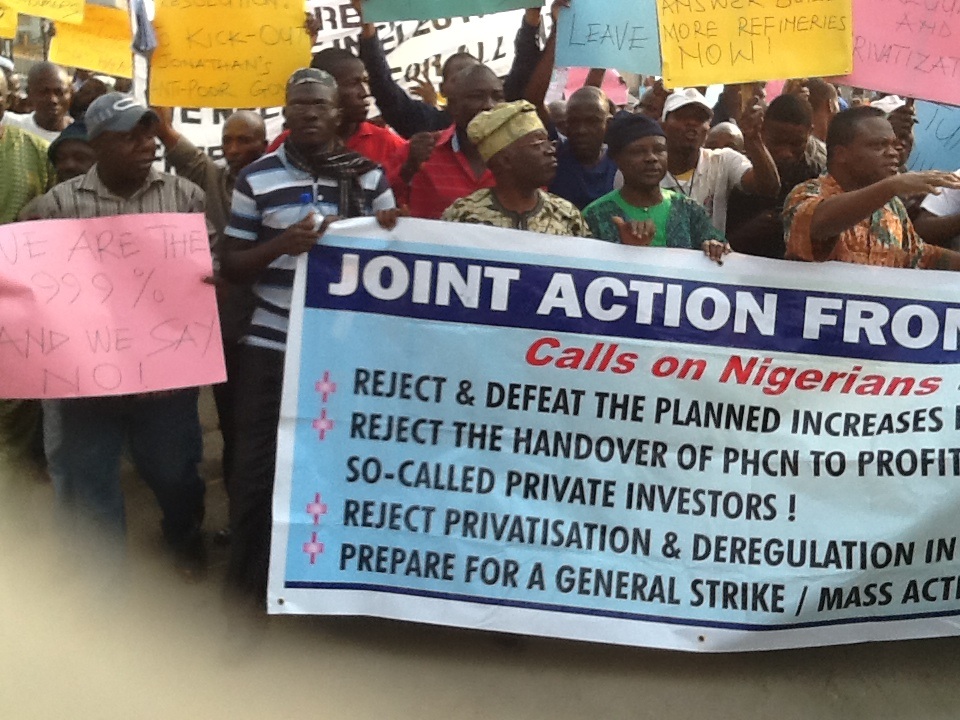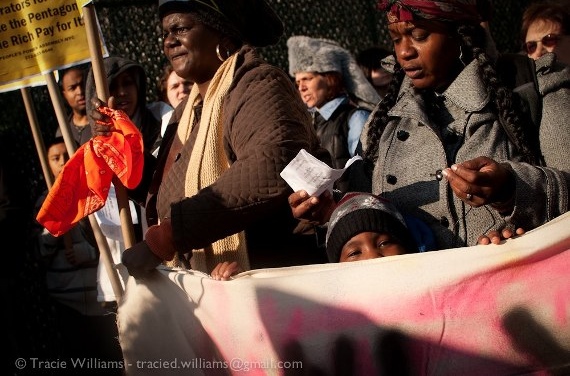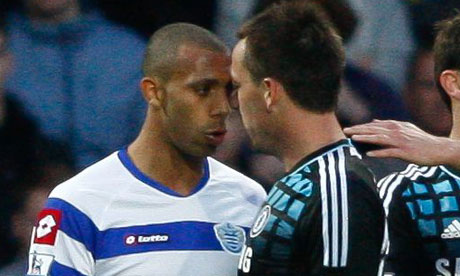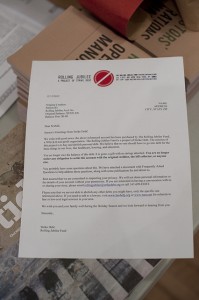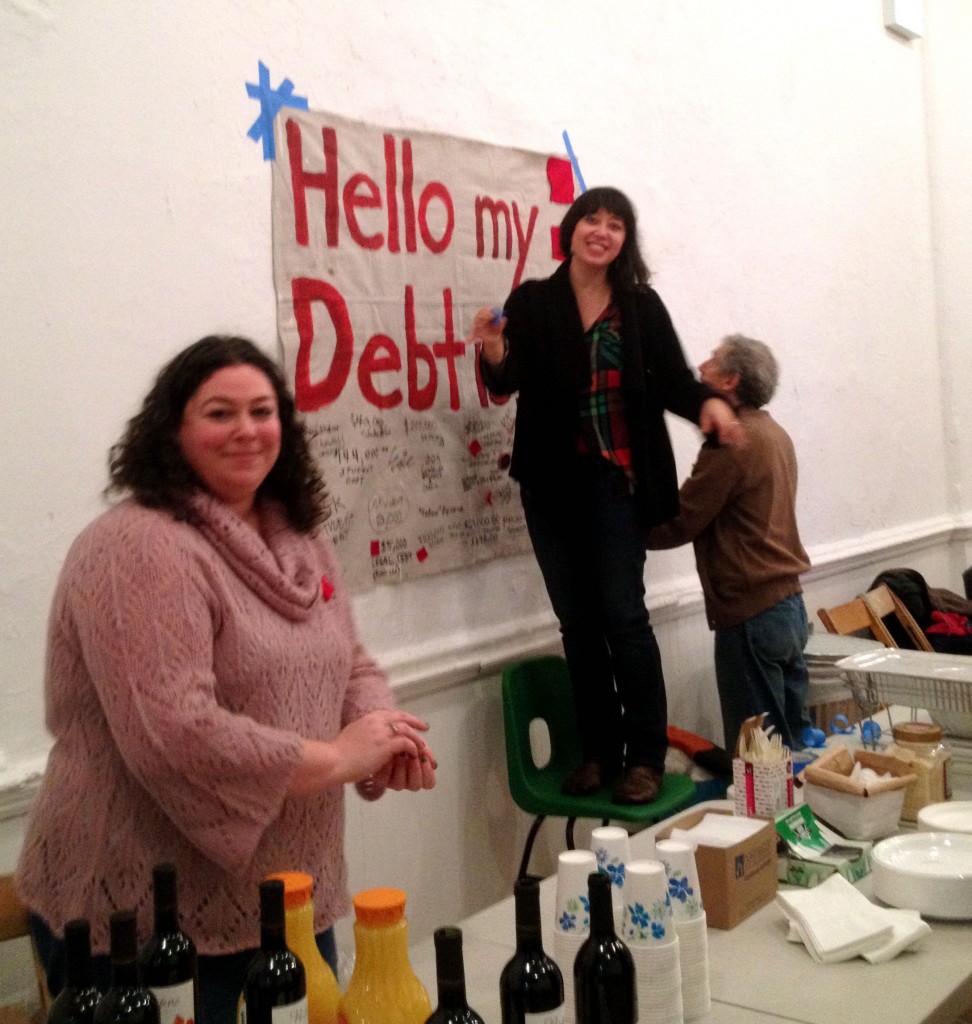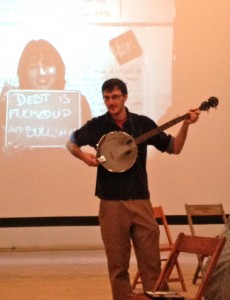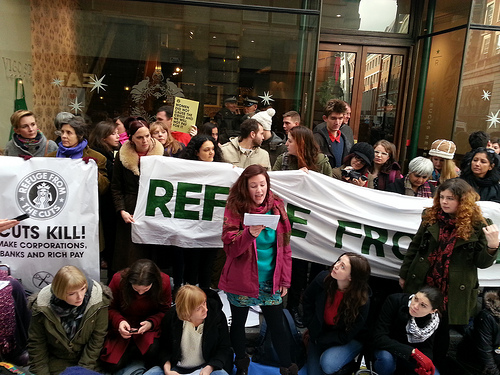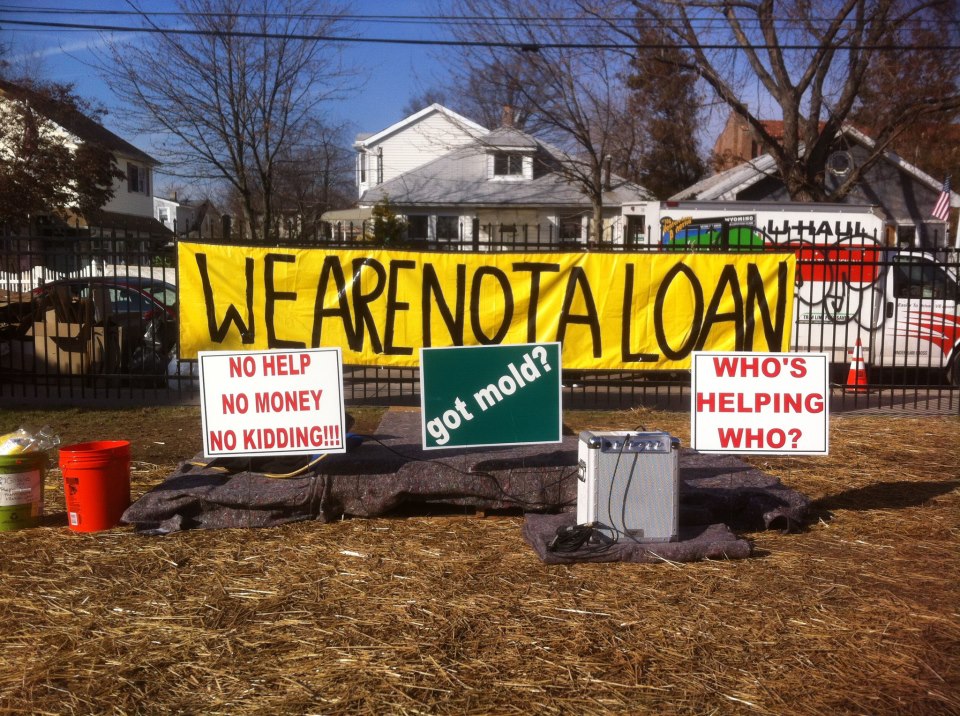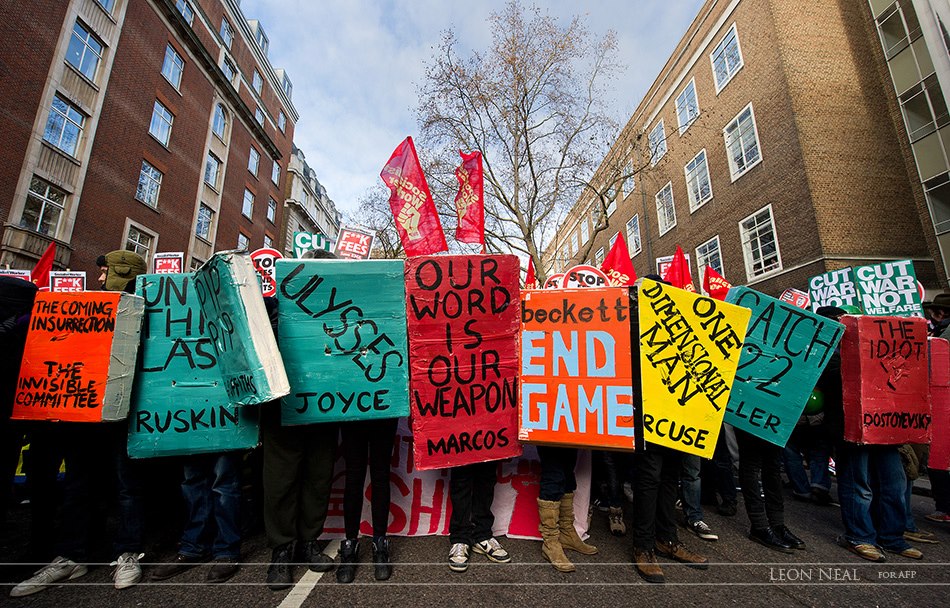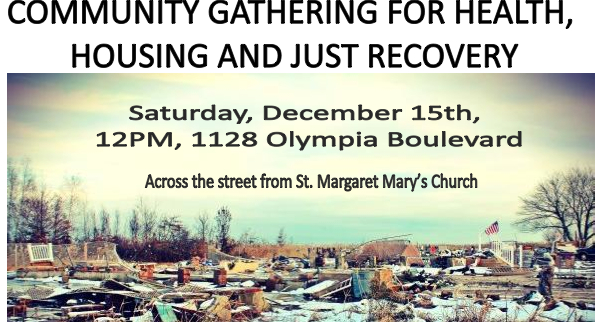Out here in Long Island, you can really see the damage caused by Hurricane Sandy. Trees are down everywhere, there’s construction on all sides. Yet New York City is trying to shut down its hurricane relief centers. FEMA requires loan applications to be in by December 31. Today the New York Times ran quotes from people calling Sandy the storm of a lifetime, who are planning to rebuild in places where the flooding was most devastating.
So let’s review the climate change situation one last time in 2012. To have experienced a month that was not warmer than the historic average, you must now be at least 27 years old. That means close to 50% of the world’s population has lived only in the time of warming. By all measures scientific and experiential, the climate is changing and the only debate is how fast.
This year, two major exit routes to climate disaster closed. With the desultory agreement at the Doha round of the UN climate change convention, even the most optimistic person has realized that national governments are not going to drive this agenda. For instance, the world’s developed nations are committed to donating about $60 billion to the poorest threatened nations to help them adapt. None has been forthcoming so far. Imagine if these countries were banks–they’d have ten times the cash.
Second, and more worrying, the global hydrocarbon industry has done an end run around the idea of “peak energy.” This much-touted idea from the 1990s suggested that the world’s reserves of fossil fuel were about to be used up and so alternatives would have to be found. The exploitation of natural gas by fracking, and the expectation that reserves under the Arctic and Greenland will become available once the ice melts, have changed all that. Scientists have created means to turn natural gas into diesel, of which there is currently a shortage, and the building blocks for plastics. In other words, the path is technically open not only to continue the fossil fuel economy but to expand it.
These points are not exactly unrelated. Politicians are easily influenced by immense wealth and there’s no money like oil money. The “recoverable reserves” of oil and gas now amount to $160 trillion, which is real money even these days–more in fact than all global equities markets. To take just one example, 85% of Nigeria’s oil revenues go to one per cent of the population. Of that money, some $300 billion is entirely unaccounted for. Living standards for the mass population have not improved during the oil exploitation period of Nigeria’s history. This is where the politics kicks in.
Remember Occupy Nigeria? There was a reason why millions participated.
Because none of the oil, gas and tar is actually necessary as other research has shown:
A well-designed combination of wind power, solar power and storage in batteries and fuel cells would nearly always exceed electricity demands while keeping costs low.
As Peter Rugh has recently shown in his excellent article on the Far Rockaways, this contradiction is now at the center of post-Sandy politics. He quotes Occupy Sandy activist Jessica Roth
“If the Rockaways were based on clean energy going into this we would have been in a completely different situation. We would have had battery packs off of solar that were storing energy. We would have had wind turbines off the coast, which can pull up to 30 miles an hour off winds coming into the shore.”
Meanwhile, State Senator Addabbo has his mind on gas. While he says he is opposed to fracking, a carbon intensive method of methane extraction widely opposed by environmentalists, he supports the construction of a 30-inch pipeline that Williams Transco plans to build that will pump highly-pressurized, inflammable, fracked gas through the Rockaways.
This is a crossroads in national and international politics that Sandy has thrown into high relief here in New York. Renewable, local energy and a related localized politics interactive with its community–a sustainable democracy. Or a pipelined energy, controlled from afar by a small global elite.
This is why we occupied 2012 and how we must take the argument forward. It’s not a “climate” debate. The climate is a model for average temperatures and conditions. There isn’t a politics in a model. The question is how we respond to the change the model predicts, who benefits from that change, and whether those impacted by it will have a voice. It’s about freedom.

